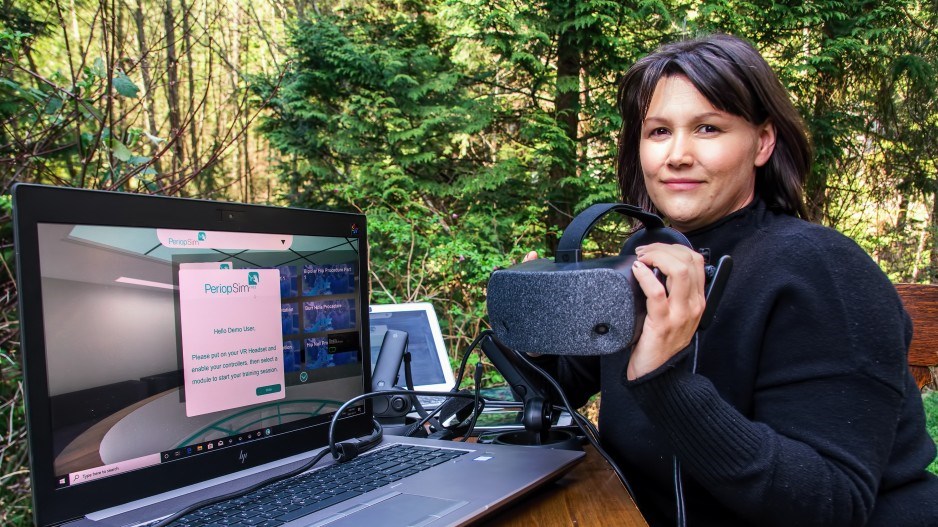Taiwan’s nimble navigation of the coronavirus pandemic is helping Dan Eisenhardt relax just a little while working from home in Vancouver.
His tech company, Form Athletica Inc., has developed all the hardware and software needed to display swimmers’ real-time metrics, such as stroke rate, within their goggles.
While the software development is led from Vancouver, the goggles are manufactured in Taiwan.
“We’re fortunate not to have any [manufacturing] issues as a result of COVID,” said Eisenhardt, Form’s founding CEO.
What has hurt demand for the sci-fi-like wearables, which sold 10,000 units in five months last year, is the closure of swimming pools across the globe as a means of flattening the curve of the COVID-19 pandemic.
Amid such social-distancing measures, industry is calling on government and other sector leaders to take notice of Vancouver’s unique virtual reality and augmented reality (VR/AR) ecosystem to offer support.
“Vancouver compared to other markets is in a strong position to weather the [pandemic’s] storm, but many are in survival mode and it will be a struggle,” Dan Burgar, co-president of the VR/AR Association’s Vancouver chapter, said in an email.
“We're already seeing startups have to cancel their leases, cut back on staff and completely rethink their business model. Investments are drying up and folks are running out of runway.”
An April 8 report from the VR/AR Association’s Vancouver chapter recommends boosting the province’s Interactive Digital Media Tax credit from 17.5% to 25% to stoke additional development.
The state-of-industry report is also calling for incentives for post-secondary institutions and accelerators/incubators to boost skills training, as well as the creation of a physical facility to help early stage companies.
Most cities don’t have a VR/AR ecosystem to speak of, however, Vancouver has benefitted from being at a unique crossroads of sizeable gaming, technology, and film and TV sectors, which have translated into a distinct local talent pool.
But the report finds the relatively young industry (71% of survey respondents founded their companies in the past decade) being hampered by challenges such as access to capital.
Just over half of respondents (53%) are dependent on foreign investment, while only 22% have been able to raise more than $1 million.
The report also recommends building angel investor networks and investor education programs.
Eisenhardt, who is also a venture capitalist and co-founder of the Vancouver Founder Fund, said hardware is a particularly difficult arena in which to raise money.
“You need to have really, really thought of a problem you want to solve with AR/VR,” said Eisenhardt, who helped raised US$8 million ahead of the launch of Form’s AR googles.
“The days of just saying, ‘We have AR/VR as a category and then we’ll figure it out later,” … are over.”
But he believes there is a silver lining to the impacts of the pandemic on the industry.
“There is some pent-up demand,” he said.
Eisenhardt expects his customer base — those willing to pay US$200 for the wearables — will likely be accumulating discretionary spending even as the economy slows, which could result in a surge in sales when social-distancing restrictions are loosened.
The recent intensification of measures against COVID-19 also prompted Surrey-based Conquer Experience Inc. to launch its latest surgical training simulation in mid-April.
“We were wrestling with when is the right time to bring our [VR] solution to the colleges,” said CEO Angela Robert, whose company had been selling its training products primarily to hospitals.
“With COVID-19, it was accelerated substantially. We knew our hospital customers would be busy preparing for the pandemic but then all of the schools would be really left in the lurch.”
While donning face-covering headsets might not be the most appealing practice right now without sufficient sanitation measures, Conquer is ensuring that the new simulation program will also be usable on tablets and desktop computers.
“People aren’t taking six months to make a decision,” Robert said.
“They have to have a solution tomorrow.”




